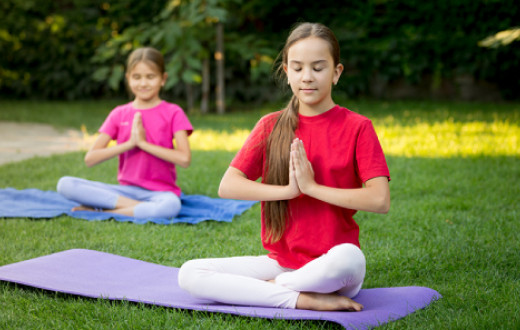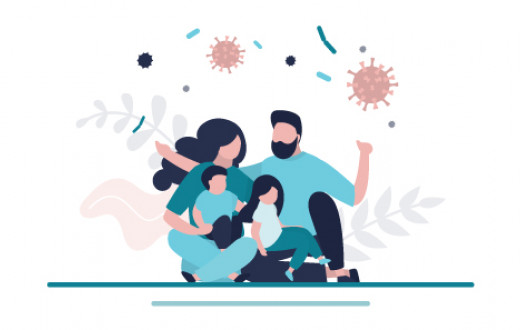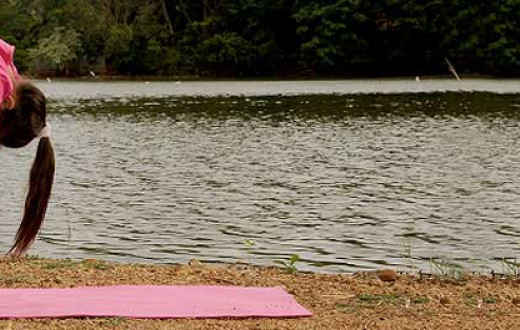How often do we warn our children to stay away from strangers but are we that much vigilant when it comes to the content they watch or listen to on digital media? Harmful digital content is no less dangerous than hostile strangers.
Our children are growing up digital. Shunning digital media is not an option. Smart parenting is! We should encourage children to adopt healthy practices of digital media and the internet. Also, children should feel free and safe to share their digital world with us.
Top 5 hacks for parenting Gen Y netizens are as follows:
Media use plan for a family: Decisions about children should be taken based on family values and rationality. Parenting styles are also great influencers. Never compromise your family values, rationality and parenting style for media or trending stuff. Make a proper media plan for your family where you put a cap on the screen time! Practice it yourself. Set examples before your children so that they can learn by mimicking you. Put aside time for life’s most important activities like family-time, face-to-face interactions, sleep, exercise, outdoor-play and storybook reading.

No preferential treatment for the media: Be it the real or the virtual world, parental control and guidance are equally applicable. Set the screen time limit. Know the associations kept by your children in the virtual world. Keep a tab on the apps, software and online platforms used by your children. Know how they spend time online. Also watch out for the websites that your children visit frequently.

Sharing screen time with children: You can bond over screen time too. Co-view and co-engage while children spend time on screen. Make it lively interactive sessions. Ask questions to children and let them answer and vice versa. Enquiry-based interactions drive natural learning. Play healthy video games. Demonstrate sportsmanship. Watch fun moral stories to sensitise children about empathy and human values. Participate in online fun activities devised for parents and children. Vigilance should be balanced with friendly interactions. This helps create a sense of security in children. They don’t think twice about sharing their online experiences with parents.

Precious face-to-face interactions: Video chat is the only option left for on-job-travelling parents or far away grandparents. Rest should indulge in two-way, face-to-face communication. Back-and-forth talk time is the bedrock of language development. Young children develop their language skills through two-way interactions rather than one-way interaction or passive listening. Eye contact with the interacting person is an essential aspect of personality development. Video chats cannot add a human touch to the overall interactive experience.

Technology as an emotional pacifier: Parents should know how to channelize the boundless energy of children. Technology shouldn’t be the only tool to pacify emotional outbursts of children. Parents should teach children to identify raw emotions and on how to handle them effectively. Yoga, pranayama and meditation workshops for children and teens conducted by the proficient teachers of the Art of Living can fill up their free hours with productive activities. Youngsters will learn how to manage stress and anxiety. They can improve their power of concentration and complete their daily activities more skillfully, and in less time than before. The workshops also boost communication and leadership skills in children.

Technology is not a bane for humans. Ethical use of technology is a boon for all age groups.
FAQ's on Hacks for Parenting
Parenting hacks are the quick shortcut solution to your kid's tricky problem. Co-view and co-engage while children spend time on screen. Balance vigilance with friendly interactions. It helps create a sense of security in children.
There is no ‘hardest’ parenting age. Over time, things that started with difficulty become easy, but replaced with other challenges.
There is no ‘stressful’ age to parent. Over time, things that started with difficulty become easy but replaced with other challenges. Potty training seemed to be the stressful stage teen tantrums takes over after some time.
There is no particular stage of life as the ‘most difficult' in parenting. Over time, things that started with difficulty become easy but replaced with other challenges. First, putting baby to sleep was difficult, then teething issues as a toddler, takes over.
The hard teenage years are between 14 - 16 years. The age when hormonal changes are at its peek. The physiological changes, peer pressure, grade performance problems, and obesity struggles get heightened.
There is no ‘hardest’ phase of parenting. Over time, things that started with difficulty become easy but replaced with other challenges. Amicably playing with friends was the hardest phase as a kid as it always ended with a fight. But later, it interchanges with boredom in studies during teens be.














